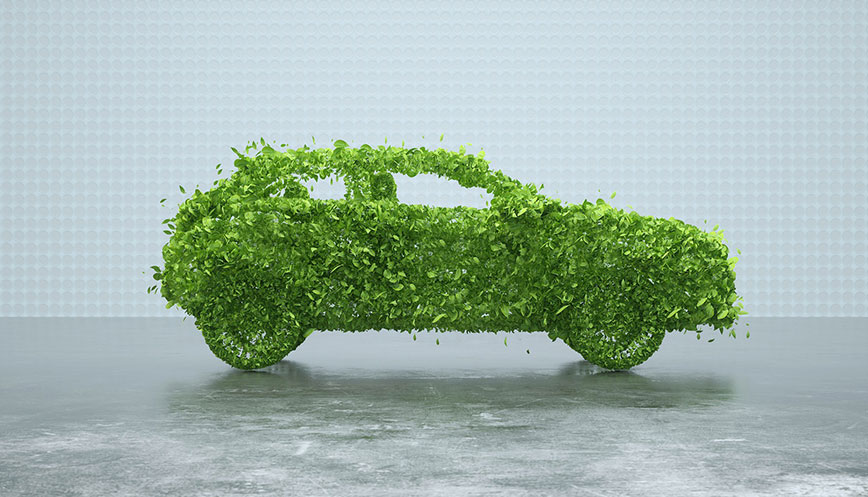Ecodesign in product development: An important aspect for sustainable transformation
Sustainable Transformation Seminars Spring 2023

The second sustainable transformation seminar for the spring is held by speaker Zeba Usmani, with the title "Ecodesign in product development: An important aspect for sustainable transformation". Zeba Usmani is an Ecodesign Engineer and Sustainability Specialist at Atlas Copco Industrial Technique AB. The format is 25 minutes presentation and 20 minutes of guided and open discussion with a KTH moderator/host.
Time: Fri 2023-05-05 12.15 - 13.00
Location: Zoom
Language: English
Participating: Zeba Usmani, Ecodesign Engineer and Sustainability Specialist, Atlas Copco Industrial Technique AB
The Sustainable Transformation Seminars spring 2023 series is held monthly, usually on a Friday. The seminar series will continue to be online.
Seminar description
Ecodesign considers environmental aspects at all stages of the product development process, striving for products which make the lowest possible environmental impact throughout the product life cycle. Its principles strive to maximise the functionality of the product and, at the same time, minimise energy consumption to make sure the environmental impact and related climate impact is as low as possible.
Ecodesign is an important aspect of sustainability. By innovating through Ecodesign, we will be able to build a value chain based on sustainability, promoting more sustainable industries. To be effective, Ecodesign needs to be integrated into current businesses’ product development processes. Ecodesign ensures focus on the use of safe chemicals, good material choice, design for circularity, carbon footprint, and energy efficiency. The drivers and barriers of Ecodesign will also be highlighted in the presentation.
We will also briefly discuss Eco Manufacturing which ensures decreased input of resources and energy and a decreased undesirable output of waste, emissions and chemicals with the same or bigger amount of product output.
Outcome and key takeaways
Education of future generations of decision-makers in the industry, such as designers, engineers and managers, will play a critical role in the effective implementation of eco-design strategies within the industry. This will also help in tackling the sustainability challenges faced by society by building a perspective among the relevant stakeholders.
Biography
Zeba Usmani, Ecodesign Engineer and Sustainability Specialist, Atlas Copco Industrial Technique AB

Zeba Usmani is currently working as an Ecodesign Engineer and Sustainability Specialist at Atlas Copco Industrial Technique AB. She is responsible for driving initiatives and collaboration in the areas of environmental sustainability, climate reporting, chemical compliance, and product compliance working under the Global Head of Sustainability and Head of Compliance ACTA for Atlas Copco Industrial Technique Business Area.
Zeba Usmani holds a PhD in Environmental Science from the Indian Institute of Technology in Dhanbad, India. She has previously worked as a Research scientist and researcher Engineer at Tallinn University of Technology.
She possesses strong experience in Lifecycle assessment (LCA), Product carbon footprint, Circular Economy, Chemical Compliance, Product Compliance and Monitoring upcoming regulations.
Her research field is Biosciences and Environment, Green Chemistry and research into Substances Hazardous to the Environment, and Environmental Protection. She is passionate about reading and travelling.
Connection to Sustainable Development Goals (SDGs)
The United Nations has set up 17 sustainable development goals , SDGs, and the KHT Transformation Platform addresses mainly four of those; SDG12 – Responsible consumption and production, SDG9- Industry innovation and infrastructure, SDG7 – Affordable and clean energy, and SDG13 – Climate action.
- My organisation Atlas Copco Industrial Technique AB, is part of the global development. Atlas Copco endorses all the goals and contributes to the achievement of eight. UN SDGs where Atlas Copco has the biggest/most direct impact; 5, 6, 7, 8, 9, 12, 13, and 16.
- Our team is particularly working on UN SDGs 7, 9, 12, and 13.
- For goal number 7, we aim to reduce CO2 emissions from energy in our operations and are working to increase our use of renewable energy. We are also constantly working towards improving the energy efficiency of the products to reduce energy consumption.
- For goal number 9, we support through innovation in our products and services. Lowering the emissions from our products indirectly impacts our customers' emissions. Our products are used in multiple critical industries hence innovations made by us indirectly result in the carbon footprint of those industries.
- For goal number 12, we aim to continuously reduce waste, conserve the use of fossil fuels and reduce emissions from transport. We also handle chemicals with due care and enforce the same on all our business partners.
- For goal number 13, we strive to reduce CO2 emissions from transport and account for end-of-life while designing products.
Contact: Zeba Usmani, email: zeba.a.usmani@atlascopco.com

